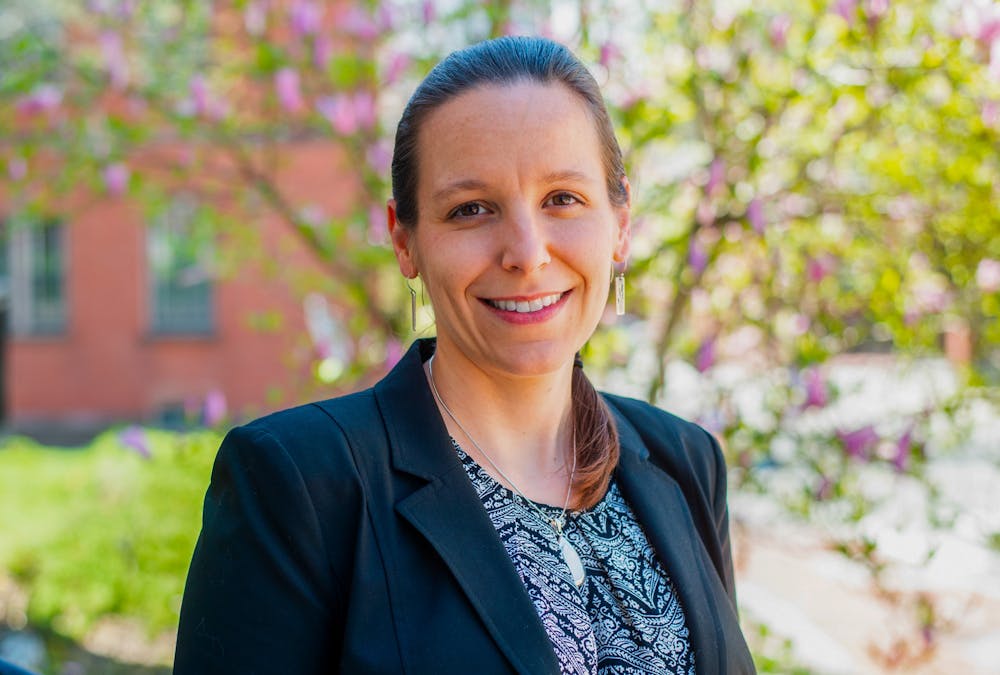Since 2018, Michele Zager has fostered relationships with students, helping them navigate their college years in the Brown-RISD Dual Degree program — first as the program’s assistant director, then as its associate director and advisor.
Now, she’ll continue helping students in a different role — as a psychotherapist at the University’s Counseling and Psychological Services, a job she began late last year.
“The advising relationships I had in the BRDD Program were and are really meaningful connections to me,” Zager wrote in an email to The Herald. “I pursued a position in CAPS to be fully dedicated to individual interactions with students and to be focused on student well-being.”
Zager advised “hundreds of students through the intricacies of an intense program,” wrote Sydney Skybetter, deputy dean of the College for the Curriculum and Co-Curriculum, in an email to The Herald. “Her care and structural brilliance enabled the continuation of a complex, inter-institutional effort.”
First joining BRDD in 2010, Zager wrote that she worked part-time while also completing a graduate degree in clinical psychology and pursuing clinical internships. After completing research on the experience of undergraduates attending art and design schools, she left the program to accept a full-time post-doctoral fellowship at Roger Williams University’s Counseling Center.
“I continued to look for different ways to integrate my interests in my work with clients and students and also to find a balance in my own identities and experiences,” Zager wrote, noting that she also started her own private practice focused specifically on young adults. She continued to work in her private practice part-time even after returning to BRDD in 2018, she wrote.
Zager wrote that she transitioned to CAPS to center her work around building relationships and creating student success.
Though Zager majored in Spanish and studio art as an undergraduate at Bucknell University, she always made sure to carve out space in her schedule to take psychology electives, she wrote. Later, she earned her master’s degree in student affairs in higher education at the Indiana University of Pennsylvania.
“I’m an introvert and found my niche to be specifically in one-on-one relationships with students in roles that focused on counseling and advising,” she wrote, adding that her time at BRDD afforded her a greater understanding of the importance of mental health care for young adults. This greater understanding soon developed into a specialized interest, inspiring Zager to pursue a doctor of psychology degree at William James College.
“Emerging adulthood is … often when mental health symptoms present and when we first have the autonomy to make the choice to seek out support and mental health care on our own,” Zager wrote. “The significant developmental tasks that we encounter between 18 and 30 years old … are transitions that I wanted to focus on.”
Students, she added, have different relationships with psychotherapists than they might have with an academic advisor. While “both types of relationships are meaningful,” psychotherapists set more “intentional boundaries” and have stricter “ethical principles.”
“Both as a psychotherapist and as an advisor, my relationships with students are central,” Zager wrote. “While the relationship is different and I may not be advocating for the students who come to see me in CAPS openly in various committee meetings, I hope that students who see me for therapy also feel that I am alongside them as their advocate.”
Zager added that she hopes to find opportunities to integrate art into her clinical work since she is no longer formally connected to the arts through RISD. Her interests in psychology and art, though seemingly separate, often fuse together in presenting opportunities for expression. “Art can be a powerful means to communicate emotions and lived experiences,” she wrote.
Now four months into her new position at CAPS, Zager wrote that she has immersed herself within a “collaborative and supportive” team.
“I’m looking forward to contributing to the team and to being able to also grow and learn from them,” she wrote.
According to CAPS Director Bryant Ford, Zager’s transition to psychotherapist has been “seamless.”
“She brings a level of energy and conscientiousness to the job that I think are really great,” he added.
Ford said that Zager’s strong organizational skills, empathy and active listening, as well as her existing familiarity with University resources and support systems, allow her to better serve students.
“Students access CAPS for all different reasons,” Zager wrote. “I hope to be able to create a relationship with students where they feel supported and accepted so that we can do this personal work together.”





